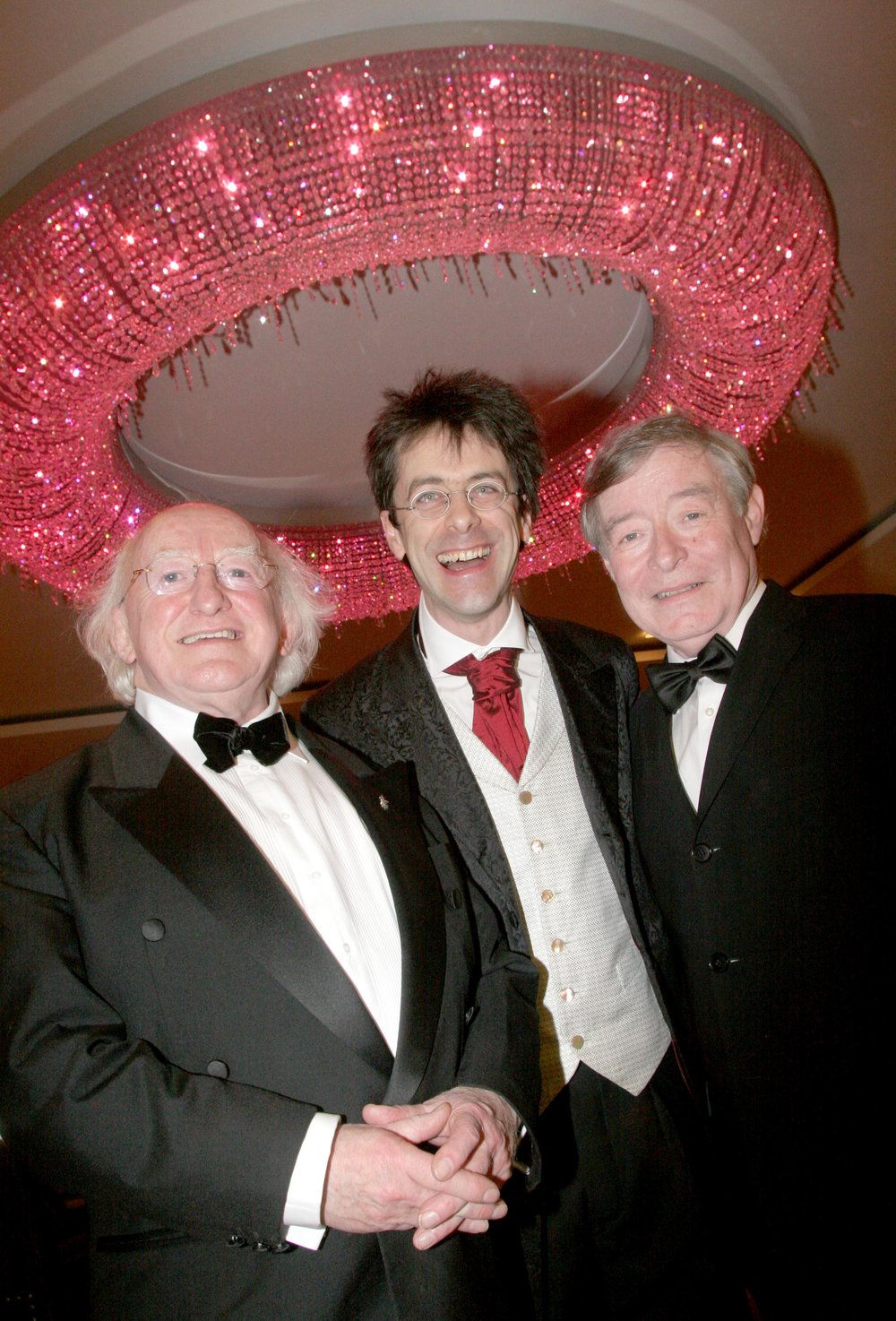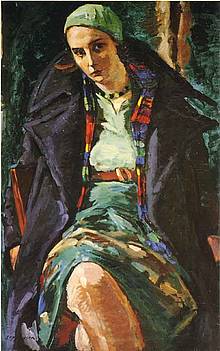Séamus Brennan, 1948 - 2008
/
(Photo: Michael D. Higgins, Julian Gough, and the late Séamus Brennan, at the NUIG Alumni Awards Gala Banquet, on March 1st 2008. Photo by Aengus McMahon.)
The funeral of Séamus Brennan, the Fianna Fáil politician and former government minister, was held yesterday. Given that there's hardly a page of Jude: Level 1 that doesn't feature a prominent member of Fianna Fáil inciting vast crowds into a homicidal xenophobic frenzy, taking bribes from property developers, or using an illegally held firearm to try and kill a defenceless orphan, it's only fair to say that Séamus Brennan was one of the good guys. He stood up to Charlie Haughey when that was a dangerous thing to do, and he tried to clean up a corrupt and scandal-banjaxed Fianna Fáil when the task seemed impossible.
I met Séamus Brennan, for the first and only time, earlier this year. We were both receiving awards from NUIG (or University College Galway, as it was when we were there, back in the early Middle Ages). My award was for my contribution of the term "Ardcrony ballocks" to Irish literature. His was for his contribution to Irish politics, which was considerable. As Ireland's Minister for Transport in the early 1990s, he had broken the (state-owned) Aer Lingus monopoly on flights to Britain, and thus freed a tiny and struggling Irish airline called Ryanair to survive, then thrive. (The young, and the non-Irish, cursing at the 3 euros they've just paid for a small bottle of water on their 1 euro Ryanair flight, will not be aware that air travel out of Ireland, until Séamus Brennan's reforms, was far, far too expensive for 90% of the Irish population. Which was the only reason there was anyone left in Ireland by the early 1990s... My generation had to emigrate by bus.) Later, he was a highly regarded Minister for Social and Family Affairs. When I met him, this year, he was Minster for Arts, Sport and Tourism (the ever-mutating ministry which appears in Jude: Level 1, thinly disguised as the Ministry for Beef, Culture, and the Islands).
The NUIG Alumni Awards ceremony was a black tie affair, Gala Ball and all, and my noble punk spirit was seething after the third round of photographs, "Stand there", "Sit there", "Hold the award a little higher."
I said to Séamus Brennan (who was patiently cooperating, changing seats when asked, standing up, sitting down), you must get awfully sick of these events, I'd imagine this must be astoundingly boring for you. No, actually, he said. Politicians are always handing these things out, but we never get to keep one. In fact, I think this is the first award I've ever received. And it's a great feeling, it's a great honour.
He was so pleased, and humble, and as a result dignified, that I felt like a spoilt little shitehawk for not accepting the award more graciously. So I amended my attitude, and my mood improved enormously, and I had a great night, with my beloved and my family, feasting and dancing and generally knocking seven kinds of crack out of it.
I also talked quite a bit that night with Séamus Brennan, and with the blessed Michael D. Higgins, another former Minister for the Arts, and former recipient of an NUIG Alumni Award (and a former lecturer of mine, in sociology, who used to put the Labour Party's noble redistributionist policies into action by buying me coffee and buns in the canteen after lectures, when I was seventeen and staaaarving). We talked about everything from Beckett to Braveheart, and Séamus Brennan came across as a gentle, thoughtful man, at peace with himself. The shoptalk of two Ministers for the Arts gives a very entertaining insight into the peculiar mix of glamour and grind in the job. At one point, Séamus passed on Mel Gibson's best wishes (from a party the week before) to Michael D. (Michael D. Higgins had, as Minister, helped Mel shoot Braveheart here in Ireland by loaning him, among other things, the Irish Army.) I also heard some very entertaining stories about paperwork and three-foot-high piles of receipts (which reflected very well on Mel Gibson, and less well on some of our much smaller, native Irish film makers.) A mighty night.
Séamus Brennan was diagnosed with cancer a year ago, so he must have known he was dying that night. (Or dying a little faster than the rest of us, as Beckett would probably point out.) He still managed to bring something to the party.
I liked him a lot. May he rest in peace.


